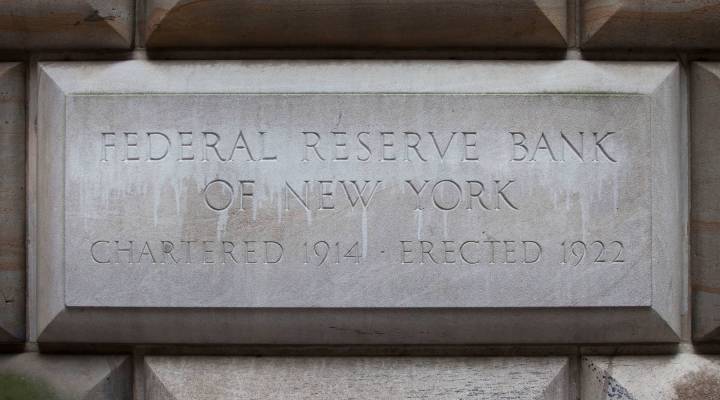
Economy hits Goldilocks inflation target number

The economy was not too hot and not too cold over the last year, but just where the Federal Reserve wanted it. The latest personal consumption expenditure price index, a key indicator of inflation, found the cost of goods increased 2 percent over the past year, matching the Fed’s targeted inflation rate exactly.
Since the recession, the inflation rate has stayed lower than 2 percent, until this latest federal measure.
University of Chicago economist Anil Kashyap said the number is not cause for celebrating. The Fed is “looking for a sustained trend” within a range around 2 percent. The slow ratcheting up of interest rates over the past couple of years is designed to help sustain the trend in coming years.
“Like Wayne Gretzky used to say, you want to pass where the teammate’s going to be,” Kashyap said. The Fed is “worried about making sure inflation in the future is on track.” But why is 2 percent the Fed’s Goldilocks number?
“There’s no science that says 2 versus 1.8 versus 2.2,” Kashyap said.
“It’s arbitrary in a sense,” said Jared Bernstein, an economist with the liberal Center for Budget and Policy Priorities and former adviser to then-Vice President Joe Biden. “I wouldn’t want to set it at 10 percent or 6 percent, so it’s not that arbitrary.”
But Bernstein said the Fed has chosen a round number in a range of acceptable inflation rates, where people may not notice their currency devaluing. He thinks regulators could shoot for higher inflation, perhaps 4 percent or 5 percent, which would be more noticeable to consumers, but also provide more head room to prevent deflation, when the economy slows.
“Normal people don’t like inflation because it erodes the buying power of their money, I get that,” Bernstein said. “Economists recognize that some inflation helps grease the wheels of commerce and is an important tool for the federal reserve.”
There’s a lot happening in the world. Through it all, Marketplace is here for you.
You rely on Marketplace to break down the world’s events and tell you how it affects you in a fact-based, approachable way. We rely on your financial support to keep making that possible.
Your donation today powers the independent journalism that you rely on. For just $5/month, you can help sustain Marketplace so we can keep reporting on the things that matter to you.


















